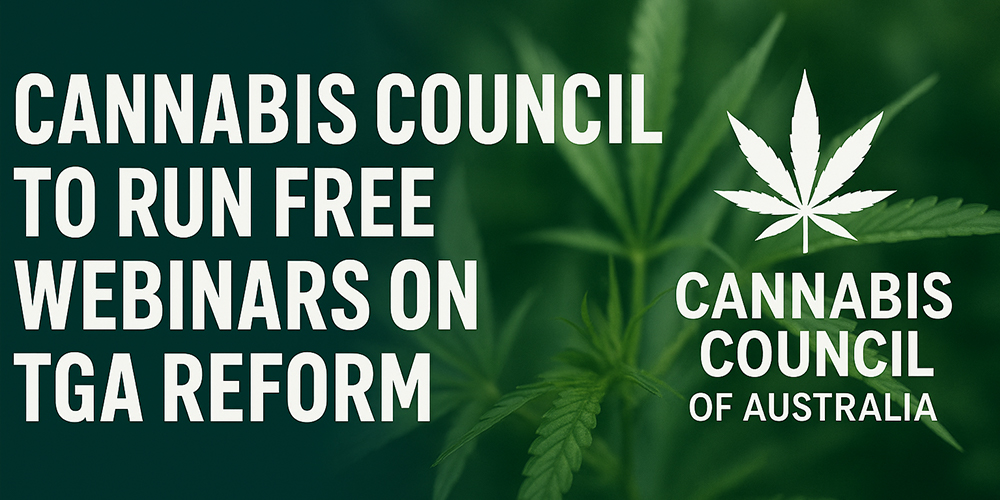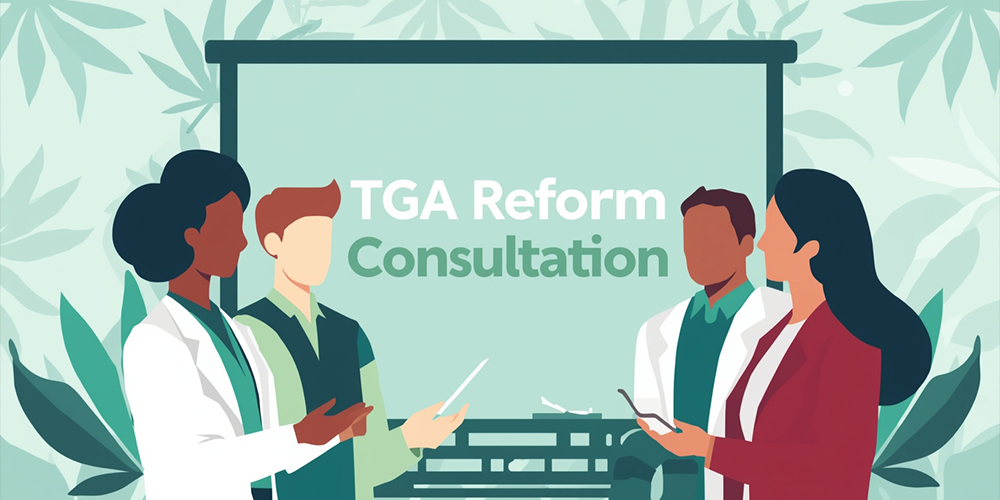
Home » Cannabis Council Australia Launches Free Webinars to Guide Industry on TGA Reform
Cannabis Council Australia Launches Free Webinars to Guide Industry on TGA Reform
The Cannabis Council of Australia (CCA) has announced a series of free webinars to help stakeholders prepare for the Therapeutic Goods Administration (TGA) consultation on the regulation of unapproved medicinal cannabis products. The initiative, set for next week, aims to ensure that patients, producers, and healthcare professionals are equipped to make meaningful submissions that could reshape the country’s medical cannabis framework.
Why This Matters Now
The TGA recently opened a public consultation on how unapproved medicinal cannabis products should be managed within the existing regulatory environment. Unlike fully registered pharmaceuticals, the vast majority of medicinal cannabis products prescribed in Australia fall under the Special Access Scheme (SAS-B) or are supplied through Authorised Prescribers.
This system, while functional, has long been criticized for being costly, inconsistent, and difficult for patients to navigate. By inviting public submissions, the TGA is signaling that reforms are on the horizon—potentially altering how thousands of Australians access their medicine.
The CCA’s webinars come at a critical moment, offering industry participants guidance on policy language, compliance strategy, and evidence presentation.

Industry and Patient Impact
For patients, the stakes are high. Many Australians using medicinal cannabis for conditions such as chronic pain, epilepsy, anxiety, and PTSD rely on products not yet fully registered with the TGA. Current rules mean patients face higher costs, limited product availability, and slower access compared to countries with more streamlined medical cannabis systems.
For the industry, the consultation could redefine market entry rules, labeling requirements, and quality assurance standards. A shift in regulation could help legitimize the sector further, allowing local producers to compete with imports and expand globally.
“Without clear rules, we risk stifling innovation and leaving patients behind,” a CCA spokesperson said in announcing the webinars. “These sessions will ensure every voice in the sector—large or small—has the tools to contribute effectively.”
Australia’s Cannabis Reform Landscape
Australia’s cannabis industry has grown steadily since 2016, when medicinal use was legalized. However, regulatory barriers have slowed its development. According to industry estimates, more than 370,000 Australians are now prescribed cannabis products, but fewer than 1% of available products are officially registered medicines.
The TGA review is part of a broader conversation happening nationwide. Several states, including Victoria and New South Wales, are weighing the future of adult-use legalization, while the federal government remains focused on the medical framework. Industry experts suggest the TGA consultation could serve as a testing ground for how policymakers balance safety, accessibility, and economic opportunity.
Looking Ahead
The free CCA webinars are expected to draw producers, doctors, patient advocates, and policy analysts from across the country. By simplifying the submission process and providing strategic insights, the sessions could help shape the outcome of the TGA’s review.
If successful, the process may lead to:
- Reduced barriers for patients seeking medicinal cannabis
- Stronger quality control measures to ensure safety
- Clearer pathways for local companies to expand in domestic and global markets
- A more cohesive regulatory framework aligned with international best practices
The consultation period will run for several weeks, with final recommendations expected later this year. Until then, the CCA’s educational push could play a pivotal role in ensuring reforms reflect the needs of both patients and the rapidly maturing Australian cannabis industry.
Key Takeaways
• Cannabis Council Australia is hosting free webinars to support submissions to the TGA’s consultation on unapproved medicinal cannabis products.
• The review could reshape how Australians access medical cannabis, reducing costs and improving availability.
• The initiative comes amid wider debates on cannabis policy, including possible future recreational legalization.
• Industry and patient voices will be crucial in shaping a fairer, more effective regulatory framework.

